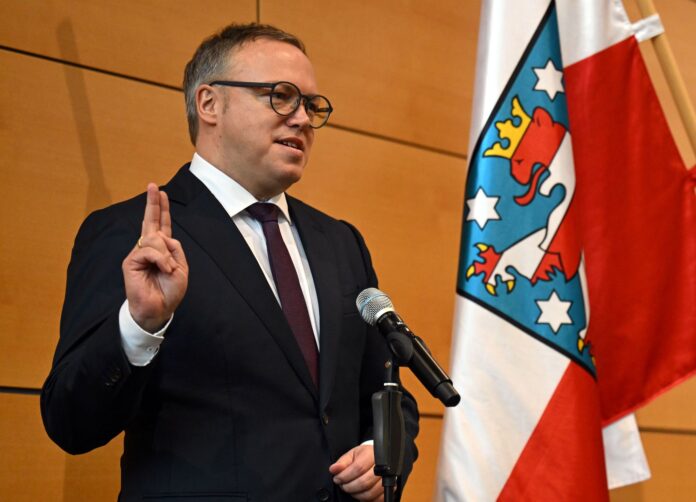Germany’s eastern state of Thuringia elected a new premier on Thursday, after months of delicate negotiations ensured the far-right Alternative for Germany (AfD) could be left out of government despite winning elections in September.
Mario Voigt from the conservative Christian Democrats (CDU) is set to govern in an unprecedented coalition with the centre-left Social Democrats (SDP) and the populist Sahra Wagenknecht Alliance (BSW).
In his first speech as premier in the capital Erfurt, Voigt hailed a “spirit of co-operation and a new political culture.”
The unlikely three-party coalition – the first of its kind in Germany since the upstart BSW split off from The Left party last year – was cemented after weeks of talks and has exactly half of the seats in the Thuringian parliament.
Ahead of the vote, the coalition held further negotiations with lawmakers from The Left to ensure Voigt would not be elected with votes from the AfD.
The AfD won September’s election in Thuringia with 32.8% of the vote, despite its chapter in the state being classified by domestic intelligence services as a known far-right extremist group.
Established parties were concerned to avoid a repeat of a controversial vote in the Thuringian parliament in 2020, which saw Thomas Kemmerich from the Free Democrats elected premier with votes from the AfD.
The taboo scenario was avoided on Thursday after The Left indicated some of its lawmakers would support the three-party coalition.
Voigt was duly elected with 51 votes in the 88-seat parliament.




